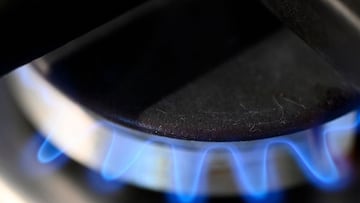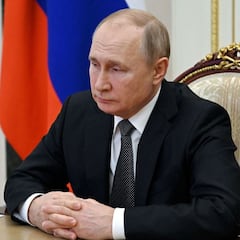What EU countries import oil and gas from Russia? Will the supply be impacted if Russia invades Ukraine?
A gas pipeline in Ukraine has suffered from explosion, showing signs of elevated tensions, and putting at risk the EU's energy supply...


Reports are circulating online that gas pipeline was hit with an explosion in a small city in the People’s Republic of Luhansk, a Russian backed separatist territory in eastern Ukraine.
The severity of the incident is unknown, but new information is showing that it was a very small residential pipeline, not anything large enough to carry gas to Europe. Javier Blas, a reporter at Bloomberg tweeted that only ninety-five clients had been impacted by the explosion.
After the pipeline “explosion” in Eastern Ukraine tonight, RIA Novosti now reports that **95 clients** were disconnected from the gas network. That’s it: ninety five clients. The name of the pipeline? It doesn’t have one. Just a small, local distribution pipe. pic.twitter.com/ydWgUI0wCa
— Javier Blas (@JavierBlas) February 19, 2022
In recent days, Russian state TV has begun to talk about threats from Ukraine, paralleling what messages coming from state media were like before the invasion of Crimea in 2014. One narrative being pushed in Russia, is that Ukrainians are experts in settling up these type of infrastructure related bombings.
In Europe and the United States, countries are warning of a possible false flag operation to create a pretext for invasion. Secretary of Stat Anthony Bliken addressed UN Security Council yesterday with the same message, also informing other members of what they have picked up as Russia's next plans. Russia has denied the allegations that an invasion is immanent, and said that it will begin to withdraw its troops. However, the opposite is being picked up on satellite images which show, more troops, more airplanes and weapons --all a symbol of more problem.
A warning emerges
Although, this explosion may not be deemed the "false flag" the US and Europe have been warning against, it does show the possibilities war could have on the oil and gas supply in Europe.
The growing tensions have led many governments to warn their citizens of what a war could mean for their energy costs and reliance. Many countries could be impacted if the sanctions imposed by the United States and European countries reduce Russia's ability to produce oil and natural gas and thus limit the supply in the global market.
Which countries purchase natural gas from Russia?
The possibility of war on the European continent poses serious questions about Europe's energy dependence on Russia. However, the dependence is mutual; while in past years Russia has looked to diversify its export markets, it still remains heavily reliant on Europe.
According to Statista, the countries in Europe that receive the highest percentage of their natural gas from Russia include, North Macedonia (100 percent), Finland (94 percent), Bulgaria (74 percent), Slovakia (70 percent), Germany (49 percent), Italy (46 percent), Poland (40 percent), and France (24 percent).
Which countries purchase oil from Russia?
Currently, Russian fuel represents more than a third of Europe's total imports.
More than seventy-percent of this oil comes through pipelines that cross through Ukrainian territory after leaving Russia. The destruction of war and the damage to the sector after US and EU sanctions are imposed, threaten the competitiveness of Russia in the energy sector.
There are four main countries that purchase the majority of Russia's crude oil: The Netherlands, Germany, Poland, and Belarus. In 2017, these four countries accounted for seventy percent of the total export volumes. Other countries who have some of the largest exports in 2020 included Italy, Finland, and Slovakia.
How would US and EU sanctions impact the oil and natural gas production in Russia?
Related stories
To use the sanctions as a deterrent, the US and some countries in Europe have not released details on what sanctions would be applied if Russia were to attack. Should these sanctions include a ban on the purchase of Russian oil, Europe's energy market could face serious shortages. Similarly, however, the Kremlin could choose to turn off the oil pipelines to Europe, further manipulating their ability to impose stricter sanctions in the short-term.
Many in Europe believe that this situation shows that it would be more energy secure if they were further on in their clean energy transition. Aside from the possibilities of supply being interrupted due to a war between Russia and Ukraine, energy prices are up across Europe, and across the globe. Prices have increased as energy demand did, but with supply lagging, costs for customers increased. Additionally, it has been a bad year for wind energy and with lower levels of energy output created, the demand for other sources has increased, leading to a uptick in price.

